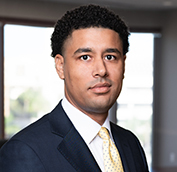In Florida and Elsewhere, Officials Target Latest Fantasy Sports Games
A crackdown on online "pick'em"-style contests in Florida could be a sign of what's to come as state regulators struggle to keep up with the rapidly changing world of daily fantasy sports and legalized sports wagering.
In past years, several daily fantasy operators have offered pick'em-style contests that are similar to prop bets previously offered by legalized sports wagering companies. However, the Florida Gaming Control Commission (FGCC) recently sent cease-and-desist letters to three daily fantasy sports operators, directing them to stop "offering or accepting illegal bets or wagers from [Florida] residents" and "conducting any illegal lotteries." In response to the cease-and-desist letters, Betr, Underdog Fantasy and PrizePicks agreed to stop offering their pick'em style contests in Florida on March 1, 2024.
At issue are newer daily fantasy sports games in which users bet against the house, known as "DFS 2.0." In these games, users predict how well particular players will perform, either higher or lower than a statistics-based projection. Users can win more by stringing together multiple player bets, just like in traditional sports betting. This is different from DFS 1.0 contests, in which players compete against other players, with operators collecting a set entry fee to organize peer-to-peer contests, and where the winning outcome was determined by the performance of multiple athletes.
FanDuel and DraftKings were some of the earliest DFS 1.0 platforms, launching in 2009 and 2012, respectively. As DFS 1.0 contests exploded in popularity, state attorneys general and regulators began to take notice. In 2015, New York tried to shut down FanDuel and DraftKings' DFS 1.0 contests. Other states followed, but FanDuel and DraftKings fought back at state capitols and in courtrooms across the country. Two years later, they had lobbied for laws explicitly permitting daily fantasy sports in 18 states.
Now, a group of attorneys general are targeting DFS 2.0 contests. In particular, the debate regarding the legality of DFS 1.0 versus DFS 2.0 contests lies in whether the house is a participant. The Unlawful Internet Gambling Enforcement Act (UIGEA) of 2005, which does not explicitly permit DFS contests on a state level, frequently uses the term "participant" in the statute, and provides that these contents generally must occur between "participants, historically meaning peer-to-peer contests." Under the DFS 2.0 model, operators have construed "participant" to include the operator, thereby providing a substantive legal basis to offer these types of contests.
Online daily fantasy operators have long argued that their contests are permissible under applicable state law which reflects and/or incorporates the fantasy sports exemption under the UIGEA. But in Florida and several other states, daily fantasy sports still operate in a legal grey area because no regulatory authority or legislature has sought to regulate fantasy sports contests.
Florida has been slow to embrace any form of online real money gaming. In 2021, Gov. Ron DeSantis finally reached an agreement with the Seminole Tribe on a new, 30-year gaming compact. The compact allows the Seminoles to develop an online sports betting platform that can be played anywhere in the state, with bets routed through servers on tribal lands. Two other gaming establishments that operate pari-mutuel wagering and cardrooms are challenging the tribal compact in court alleging that the Seminole Tribe's acceptance of sports wagers violates the Indian Gaming Regulatory Act. While the court challenges continue, the Seminoles' Hard Rock Bet app has generated more than $120 million for the state since its launch in December 2023.
Clearly, there is money to be made from regulating and taxing sports wagering and daily fantasy contests, but legislative efforts earlier this year to authorize and regulate fantasy sports fell short. Senate Bill 1658 would have established new requirements for operators – including a hefty $500,000 application fee – and tasked the FGCC with oversight. The Senate Fiscal Policy Committee unanimously approved SB1658, but the bill failed to advance out of committee before the end of the regular session.
However, while SB1658 would have formally recognized DFS 1.0 contests in Florida, it still prohibited bets against the house, including the pick'em-style contests the FGCC has targeted.
Florida isn't the only state to have taken aim at DFS 2.0 contests this year. Officials in Arkansas, Massachusetts and Ohio are challenging pick'em-style contests as unlicensed sports betting. And after New York outlawed fantasy sports contests based on proposition betting last year, operator PrizePicks has agreed to pay nearly $15 million for operating without a license and leave the state.
However, neither FanDuel nor DraftKings have been told to cease operations. In fact, the American Gaming Association, the lobbying organization that represents the fantasy sports mega-operators, praised efforts in Florida and elsewhere to shut down DFS 2.0 contests. The association has raised concerns reminiscent of those voiced by licensed gaming operators in opposition
to DFS 1.0.
Without a legislative fix from Florida lawmakers, DFS 2.0 companies will continue to face regulatory scrutiny, as well as potential litigation from state attorneys general. Consequently, courts will be asked to construe the meaning of a two decades old statute, and its application to state gaming laws in Florida and across the country.

